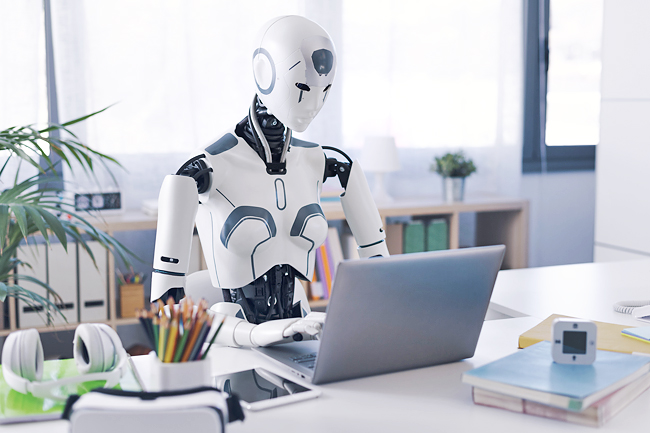BERLIN (AFP) – No employee should be “subject to the will of a machine”, European trade union chief Esther Lynch has warned, calling for regulation to ensure humans remain in control as artificial intelligence (AI) technology advances at breakneck speed.
In the same way that European Union (EU) treaties protect health and safety in the workplace, rules are needed to guarantee “the human-in-control principle” when it comes to AI, Lynch said in an interview ahead of a major gathering of union representatives in Berlin.
“We need to be guaranteed that no worker is subject to the will of a machine,” Lynch told AFP, a scenario she said would be “dystopian”.
Lynch, general secretary of the European Trade Union Confederation (ETUC) since last December, headed the four-day ETUC Congress that began in the German capital on Tuesday.
NOT JUST THE ONE PER CENT
Ever since the wildly popular AI chatbot ChatGPT burst onto the scene late last year, debate has been swirling about how the technology will upend the world of work, potentially transforming many jobs along the way.
While supporters point out that AI tools can take over automated or repetitive tasks and free up staff to do more creative work, sceptics worry about job cuts, data protection and losing a human element in some decision-making processes.

Lynch, 60, said AI regulation was one of the topics she would be discussing with the EU’s Jobs and Social Rights Commissioner Nicolas Schmit during the congress.
With every technology there’s “a positive side and a negative side, and the same will be true of AI”, the Irish woman said.
“What we have seen is that whenever you involve workers and their unions in the introduction of technology… the outcomes are better.”
The EU is currently debating a draft text calling for curbs on how AI can be used in Europe, bringing the bloc a step closer to an AI law.
It is “critically important” that AI is introduced “in a way that works for working people rather than against them”, Lynch said.
“It can’t be the case that only the top one per cent take all of the benefits of AI, and leave everybody else not benefiting from the productivity gains that will come from AI,” she went on.
“We need to make sure that where parts of jobs or whole jobs or whole industries are displaced, that there are other quality jobs created.”
INFLATION COSTS
Division of wealth will be a key theme at the congress as employees across Europe feel the pain from a cost-of-living squeeze as a result of high inflation.
Lynch said while workers were struggling to make ends meet, many companies had benefitted from rising prices and enjoyed higher profits and dividend payouts.
“Europe’s top 1,200 companies’ dividends increased by 14 per cent” last year, she said, whereas wages only rose by four per cent on average.
“So it’s quite clear who’s driving inflation. It’s not working people,” Lynch said.
The European Central Bank’s series of interest rate hikes, aimed at cooling inflation, were only worsening the inequality, she added.
Higher borrowing costs “aren’t the solution for treating dividends in a fairer way,” according to Lynch.
“The solution for that is: tax those dividends and then redistribute the wealth,” she said.








